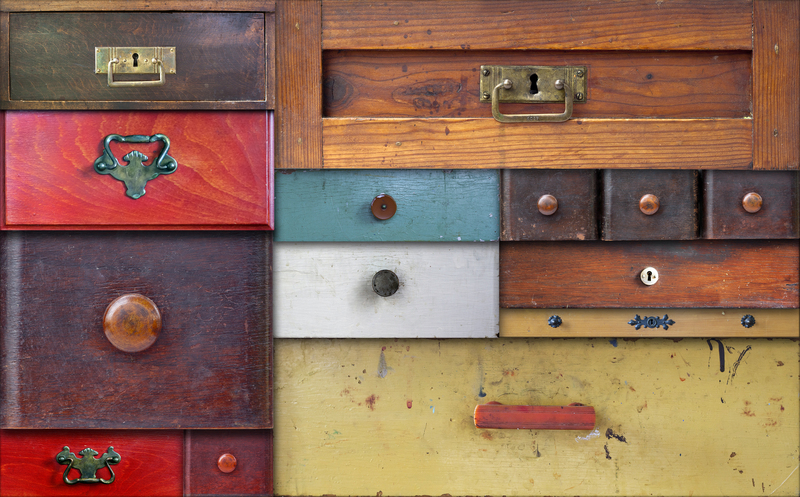Smart and Convenient Plant Pot Disposal Ideas
Do you have a growing collection of empty plant pots from your latest gardening ventures? The challenge of plant pot disposal can seem trivial at first, but when the pots start piling up, it's essential to find eco-friendly, convenient, and smart ways to get rid of them. This comprehensive article explores smart and convenient plant pot disposal ideas that are good for your garden, wallet, and the environment.
Why Responsible Plant Pot Disposal Matters
Plant pots come in many forms--plastic, terracotta, ceramic, biodegradable--that pose unique disposal challenges. Improper disposal of plant pots, especially plastic ones, contributes to landfill overcrowding, soil pollution, and environmental degradation. A smarter approach to disposing of plant pots ensures they're either reused, recycled, or composted effectively, keeping them out of landfills and giving them a new lease on life.
Environmental Impact of Plant Pots
- Plastic pots often end up in landfills, persisting for hundreds of years without decomposing.
- Ceramic and terracotta pots are heavy and don't break down, but can sometimes be upcycled or reused.
- Biodegradable pots offer easier disposal, but only if discarded properly.
Understanding the impacts of different pot types is crucial to choosing the best disposal methods.

Smart Plant Pot Disposal Ideas
Ready to tackle that pile? Here are smart plant pot disposal solutions you can implement right now:
1. Reuse and Repurpose
Repurposing old plant pots is the easiest and most environmentally-friendly option. Before you consider throwing them away, ask yourself how they can be used in your home or garden.
- Start seedlings: Small pots are ideal for germinating new plants.
- Organize tools: Use larger pots to store gardening tools, hoses, or other supplies.
- Craft projects: With some paint and creativity, plant pots make great DIY craft containers for both kids and adults.
- Gift packaging: Use decorative pots as unique gift containers for houseplants, herbs, or homemade treats.
Reusing plant pots extends their life and helps reduce waste at the source.
2. Donate to Local Organizations
One of the most convenient plant pot disposal methods is donating. Many community gardens, schools, and gardening clubs welcome donations of gently used pots. Nursery owners and charitable organizations often run pot exchange programs, ensuring pots find a new home.
- Check with local plant nurseries or garden centers about drop-off or recycle days.
- Contact community centers, schools, or non-profits--many run gardening programs on tight budgets and would love to have your surplus pots.
- Advertise on social media gardening groups or marketplaces--someone nearby may be looking for free pots!
Donating plant pots helps support local green initiatives and brings your unused containers back into circulation.
3. Utilize Plant Pot Recycling Programs
Recycling is a key aspect of eco-friendly plant pot disposal solutions. While not all municipal curbside programs accept plant pots due to their material and contamination (like soil residue), more and more garden centers now offer recycling locations specifically for plant pots.
- Check the Society of Garden Designers or local horticultural organizations for a list of recycling drop-off points.
- Big-box home improvement stores, such as Lowe's and Home Depot, often have return bins for used plant pots in the spring and summer.
- Always clean your pots thoroughly before recycling, as dirt and residue can interfere with recycling processes.
By using dedicated recycling points, you keep plastic out of landfills and support circular gardening economies.
4. Upcycle into Garden Projects
Looking for a creative and practical plant pot disposal idea? Upcycling is your answer! Repurpose old pots into useful or decorative garden additions:
- Vertical gardens: Stack and secure pots to make a green wall or tower.
- Bird baths or feeders: Larger ceramic pots make beautiful bases for bird baths with a simple saucer on top.
- Compost bins: Large pots with holes can become mini-composters for kitchen waste or leaf litter.
- Garden art: Paint, decorate, and arrange pots to create whimsical sculptures, fairy gardens, or themed displays.
Upcycling plant pots reduces waste and adds personal style to your garden.
5. Compost Biodegradable Pots
If you use biodegradable plant pots made from materials like coir, peat, or rice hulls, composting is a smart option. These pots break down naturally over time and enrich the soil.
- Ensure the pot is 100% biodegradable and free from plastic coatings or dyes.
- Chop or crush the pot before adding it to the compost to speed up decomposition.
- Mix with other organic waste for best results.
Composting is the ultimate earth-friendly disposal method for organic pots.
Convenient Tips for Specific Plant Pot Types
Each type of pot requires slightly different handling. Here's how to make plant pot disposal easy, no matter what your collection contains:
Disposing of Plastic Pots
- Clean and dry pots thoroughly--remove all soil, plant debris, and stickers.
- Check the recycling symbol (usually on the bottom). Most recyclable pots are marked #2 (HDPE) or #5 (PP) plastics.
- Use dedicated recycling programs, as curbside pickup may not accept certain plastics.
- Consider donating or reusing as the first choice, since some plastics are still hard to recycle.
Disposing of Ceramic and Terracotta Pots
- Reusing or upcycling is best, as recycling options are limited.
- Donate larger undamaged pots to garden centers or community spaces.
- If broken, crush into small pieces and use as drainage material at the bottom of new plant containers.
- For severely broken pots, check local construction waste or masonry recyclers for further options.
Disposing of Biodegradable Pots
- Compost them at home or through municipal composting programs.
- If composting isn't possible, simply plant the pot with your plant, as most biodegradable pots break down in soil over time.
- If leftover, break up and till into garden beds as a soil amendment.
Smart Moving and Storage for Future Use
If you don't want to get rid of your plant pots right away, here are some smart ideas for storing plant pots conveniently:
- Nesting: Stack smaller pots inside larger ones to save space.
- Shelving: Dedicate a garden shed shelf to clean, dry pots arranged by size and material.
- Labeled bins: Store unique or rare pots in labeled containers to avoid confusion during the next planting season.
Proper storage means your pots are ready and organized for the next round of gardening.
Tips for Avoiding Plant Pot Waste in the Future
Preventing the plant pot problem before it starts is the best way to avoid disposal headaches. Here are a few eco-friendly tips:
- Purchase from nurseries that use returnable or biodegradable pots.
- Grow your own plants from seed in reusable trays or pots.
- Take pots back to the nursery or participate in exchange programs.
- Ask for minimal packaging when buying plants at the store.
- Share or swap pots with neighbors and fellow gardeners.
Practice zero waste gardening by making conscious choices on your next plant purchase!

Frequently Asked Questions About Plant Pot Disposal
Q: Can plant pots go in the regular recycling bin?
A: Not always. Many municipal recycling programs don't accept plant pots due to the type of plastic or contamination. Check the recycling symbol and your local regulations, or use dedicated recycling programs at garden centers.
Q: Is it safe to reuse old plant pots?
A: Yes, as long as you thoroughly clean them to prevent the spread of plant diseases. Scrub with hot water and mild detergent or a diluted bleach solution (1:10 bleach to water).
Q: Are biodegradable pots compostable?
A: Most are! Break them up before composting and avoid those with plastic linings. Always follow any disposal instructions from the manufacturer.
Q: Where can I donate plant pots?
A: Local nurseries, community gardens, schools, and non-profit organizations are great places. You can also offer them to neighbors via online gardening groups.
Conclusion: Make Plant Pot Disposal Eco-Friendly and Easy
Smart and convenient plant pot disposal isn't just about decluttering--it's an essential act of environmental stewardship. Whether you choose to reuse, donate, recycle, upcycle, or compost, each method helps keep harmful materials out of landfills and supports the circular gardening economy. By following these tips, your collection of old plant pots can find a new purpose, beautify your home or community, and help ensure a greener planet for generations to come.
- Reuse and repurpose plant pots for seedlings, storage, crafts, and gifts.
- Donate or exchange pots with gardening groups and organizations.
- Use dedicated recycling programs for plastics.
- Upcycle into creative garden additions.
- Compost biodegradable pots for zero waste.
Ready to put these smart plant pot disposal ideas into action? Your garden--and the environment--will thank you!